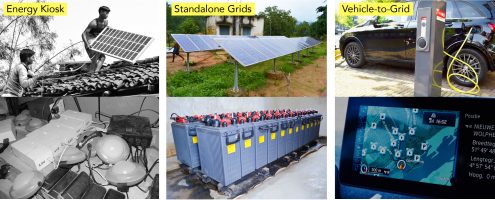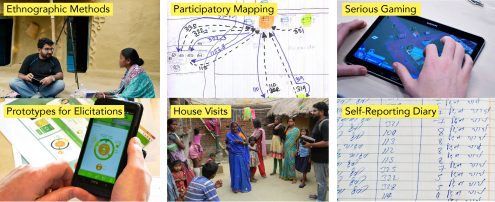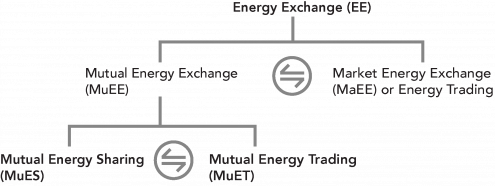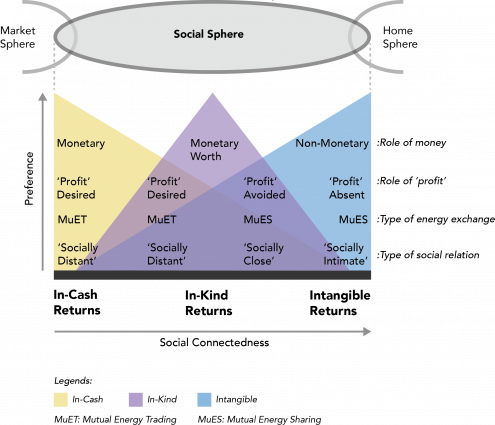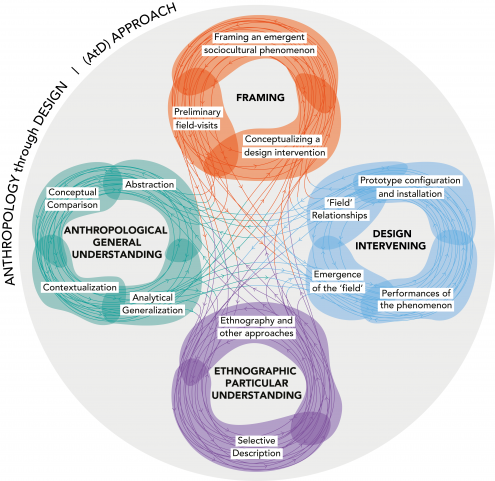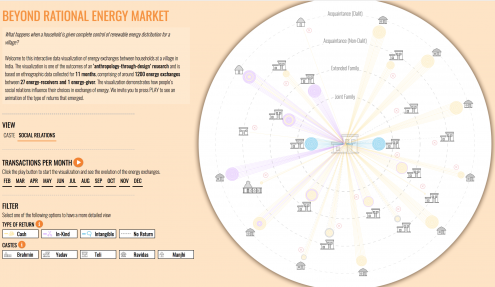Conceptualizing Inter-Household Energy Exchange: An Anthropology-through-Design Approach
Summary of the research
With the growth of decentralized renewable energy systems worldwide, an arena for energy exchanges between households is opening up. This ongoing research endeavour develops a cross-cultural understanding of inter-household energy exchanges by investigating the social and cultural embeddedness of energy exchanges in rural India and the urban Netherlands. This transdisciplinary research extends economic anthropological perspectives to explore and design for inter-household energy exchanges. The analysis reveals the role of social relations, such as kinship, caste, class, and gender, and diverse values in energy exchanges. The project created a taxonomy of energy exchanges and a conceptual model of ‘returns-continuum’. Further, the project developes and proposes a novel approach called Anthropology-through-Design (AtD) that brings together perspectives from ethnography and research-through-design and is a methodological contribution to the emerging field of design anthropology. This approach relocates ‘design’ from being an object of anthropology to become an instrument for doing anthropology.
Description of the research
Context
With the growth of decentralized renewable energy systems worldwide, an arena for interhousehold energy exchanges between households is opening up. In these systems, householders are imagined to acquire agency by having choice and control over inter-household energy exchanges within neighbourhoods or villages. As a hallmark of the dominant rational choice perspective, householders engaging in an energy exchange are imagined as self-interested, calculating individuals who strive for profit maximization and are motivated by price incentives. The relationships between local people are limited to that of a buyer and seller. Similarly, the value of energy exchanges is confined to the ideas of efficiency, optimization, and maximization. This project’s primary aim is to develop a cross-cultural conceptual knowledge of inter-household energy exchanges by investigating the social and cultural embeddedness of energy exchanges. More specifically, the project explores how local social relations and diverse values shape inter-household energy exchanges.
Field-sites and participants
(1) The householders at the field-sites in Gaya district of Bihar state of India. (2) The householders and local communities of ArenApoort urban district located in Amsterdam-Southeast of Amsterdam, The Netherlands.
Anthropological Relevance
The project builds upon anthropological literature on various types of ‘exchange’, such as trading, sharing, gifting, allocation, and barter. The incredible works of anthropologists such as Marcel Mauss, Karl Polanyi, Stephen Gudeman, Robert C. Hunt, and Thomas Widlok forms the theoretical backdrop of this project. This trans-disciplinary project is one of the earliest works that brings economic anthropological perspectives to the understanding of energy exchanges. The project reveals the role of social relations, such as kinship, caste, class, and gender, and diverse values in energy exchanges (described below). Overall, the project follows an iterative, emergent and explorative approach where the field observations and ethnographic insights shaped the research direction. The comparisons of these observations and insights with the anthropological discourse on ‘exchange’ facilitated the framing of inter-household energy exchange. Further, it empowered me to develop a critical stance on the rational choice perspective of energy exchange.
The project resulted in two key conceptual outputs. First, identifying and describing a taxonomy of energy exchanges-‘mutual energy sharing’ and ‘mutual energy trading’. Here, the analysis builds upon and extends the theoretical work on dialectic in an economy by Stephen Gudeman, an economic anthropologist. The term ‘mutual’ is about anthropological discourse on mutuality.
Second, the project creates a classification of peer-to-peer returns consisting of three types, i.e., in-cash, in-kind, and intangible. The project shows the significance of both monetary and non-monetary returns for energy exchanges. Further, the study presents a conceptual model of returns-continuum that demonstrates how householders’ preference for a type of return varies with the nature of their social relations with each other. Overall, the project showcases that when people get to structure energy exchanges, they do so by employing a range of social, cultural, moral and economic values and demonstrates that there is more to energy exchanges than what the dominant rational choice perspective describes.
Anthropology through Design (AtD)
This project develops and proposes a novel approach called ‘Anthropology through Design’ (AtD) that facilitates generating anthropological knowledge about an emergent socio-cultural phenomenon, such as inter-household energy exchanges, through a design intervention. The proposed approach brings together perspectives from research-through-design, design anthropology, and ethnography and is a methodological contribution to the emerging field of design anthropology. This approach takes an innovative step in relocating ‘design’ from being an object of anthropology to becoming an instrument for doing anthropology.
Beyond Rational Energy Market
The project also created an interactive visualization, Beyond Rational Energy Market, to disseminate anthropological knowledge in a creative, engaging, and interactive way to a diverse audience consisting of people from academia, business, government, activists working in the energy sector, designers, and the common public. The interactive visualization was exhibited at various venues such as Dutch Design Week, Research through Design 2019 conference, and TU Delft’s Global Impact Day 2019.
Awards
- Third Prize, the annual Why the World Needs Anthropologists (WWNA) Apply Award by the European Association of Social Anthropologists’ Applied Anthropology Network (EASA-AAN)
- Delft Global Seed Fund award (15k euros)
- Design United Demonstrator Fund (10K euros)
- Exhibited ‘Beyond Rational Energy Market’, an interactive visualization, at Mind the Step exhibition at Dutch Design Week 2017


